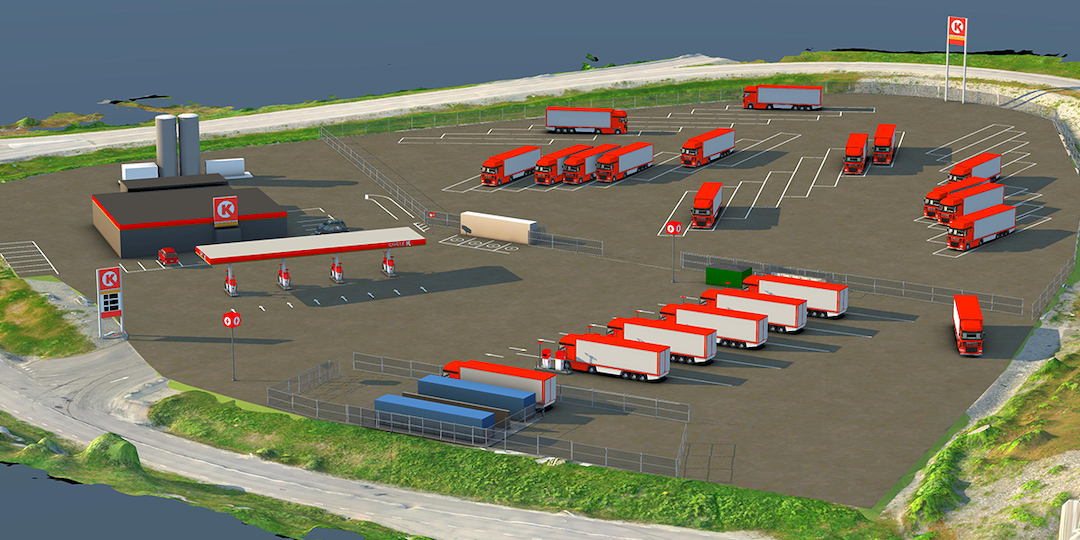OG Clean Fuels, in collaboration with the convenience stores and service stations chain Circle K, is building a hydrogen filling station for heavy transport at Vädermotet in the Port of Gothenburg, Sweden. The location was strategically chosen next to the primary routes in and out of the port – Hisingsleden, 155 and the future Halvorslänken.
The development of this facility has been fully funded by the Swedish Energy Agency and is part of the Tranzero Initiative, an emission reduction project initiated by the Port of Gothenburg AB, the Volvo Group, Scania and Stena Line. The aim is to accelerate the transition of both land and maritime transport to fossil-free alternatives such as green hydrogen.
“OG Clean Fuels is committed to contributing to a cleaner planet, and this is an important step on that journey. We want to be a leading player in hydrogen in Europe, and this project fits in with our strategy. Going forward, we will continue to invest heavily in bio-CNG, bio-LNG, hydrogen and EVs”, said founder and CEO of OG Marcel Borger.
The Circle K station at Vädermotet will initially have six refueling points for heavy vehicles, and is built from a truck perspective, which means good turning radius and that all refueling points can be accessed from several directions by different types of trucks. It will also be Circle K Sweden’s first hydrogen station.
“The Vädermotet station will be the new hub to facilitate the transition from fossil to alternative fuels for heavy traffic. We are incredibly proud of what we have achieved here, and are really looking forward to continuing the journey towards sustainable conversion together with OG Clean Fuels and the hydrogen that will soon be available at the Vädermotet”, commented Lennart Olsson, responsible for charging heavy traffic at Circle K.
Nilsson Energy is also planning to build a hydrogen station at the Gothenburg RoRo Terminal in the port. “The most important thing about having two stations is the security that it will be possible to refuel hydrogen in the port without interruption, regardless of whether one station would be closed for maintenance or similar. It creates a robustness in the infrastructure that is a crucial factor for haulers considering converting parts of their fleets to fuel cell operation,” added Viktor Allgurén, Head of Innovation – The Port of Gothenburg.
Source: OG Clean Fuels







